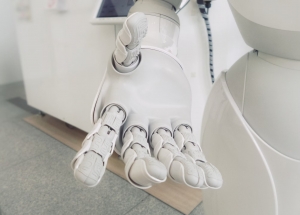Introduction
Addiction recovery has historically been a labyrinthine journey, fraught with setbacks, emotional turbulence, and social isolation. Traditional recovery programs, while effective for some, often fall short in delivering real-time, personalized support. Enter artificial intelligence (AI), a paradigm-shifting technology poised to revolutionize the way recovery is approached. With its capacity to analyze vast datasets, anticipate relapse, and provide continuous support, AI presents an unprecedented opportunity to enhance the journey toward sustained sobriety.
The Current Landscape of Addiction Recovery
Conventional addiction recovery relies heavily on structured interventions such as inpatient rehabilitation, counseling, and support groups like Alcoholics Anonymous. While these frameworks provide essential human connection, they are not without limitations. Accessibility remains a significant barrier, with many unable to engage due to geographic, financial, or social constraints. Furthermore, the episodic nature of traditional programs often leaves gaps between therapy sessions, during which individuals may struggle without adequate support. The human-centric approach, though empathetic, can lack the immediacy and adaptability required to respond to momentary crises or subtle behavioral changes indicative of relapse.
Access to Treatment Options
Navigating treatment for opioid use disorder can be complex, especially when considering newer medications. One common question arises regarding affordability and insurance support. Patients and caregivers often ask, "is Sublocade covered by Medicaid in NJ?" The answer is generally yes—eligible Medicaid recipients in New Jersey can access Sublocade, a monthly injectable buprenorphine treatment, often with minimal out-of-pocket costs. Coverage usually requires prior authorization to ensure medical necessity, and consulting with a healthcare provider or Medicaid representative is essential. This access helps improve treatment adherence and supports long-term recovery efforts.
Artificial Intelligence in Mental Health
AI is steadily carving its niche within mental health, leveraging technologies such as machine learning, natural language processing, and neural networks to decode complex behavioral patterns. In behavioral health, AI systems can analyze speech, social media activity, and physiological data to detect shifts in mood or triggers associated with addictive behaviors. Predictive analytics enable these systems to forecast potential relapse events, allowing interventions to occur preemptively. By transforming raw data into actionable insights, AI facilitates a proactive, rather than reactive, approach to recovery.
AI-Powered Tools for Addiction Recovery
AI manifests in addiction recovery through several innovative tools:
- Chatbots and Virtual Therapists: AI-driven conversational agents provide 24/7 support, offering coping strategies, crisis intervention, and empathetic listening. These virtual companions reduce feelings of isolation and act as first responders during moments of vulnerability.
- Mobile Apps with AI-Driven Monitoring: Applications utilize machine learning algorithms to track behavior, mood, and substance use patterns, offering tailored reminders, motivational prompts, and adaptive therapy modules.
- Wearable Devices and Biometric Feedback: Wearables measure physiological indicators such as heart rate variability and stress levels. AI interprets these metrics to signal heightened risk of relapse, prompting timely interventions.
Personalization and Predictive Support
One of AI's most profound contributions is its ability to customize recovery journeys. By analyzing longitudinal data, AI can identify triggers unique to each individual, calibrating interventions with surgical precision. Early warning systems, fueled by behavioral analytics, alert both the user and their support network when subtle warning signs emerge. This predictive capability transforms recovery into a dynamic, continuously adaptive process, significantly reducing the likelihood of relapse and fostering long-term resilience.
Ethical and Practical Considerations
Despite its promise, the deployment of AI in addiction recovery is not devoid of challenges:
- Privacy Concerns and Data Security: Sensitive personal data collected by AI tools must be safeguarded against breaches and misuse. Trust is paramount in a domain as intimate as recovery.
- Balancing Automation and Human Touch: AI should augment, not replace, human connection. Recovery remains a deeply social and emotional endeavor, and over-reliance on technology may undermine therapeutic rapport.
- Bias and Accessibility: Algorithms trained on skewed datasets may inadvertently perpetuate inequities. Ensuring inclusivity and cultural competence is essential to delivering equitable care.
Success Stories and Case Studies
Several AI-assisted programs have demonstrated measurable improvements in recovery outcomes. Virtual therapy platforms report increased engagement, with users accessing support more frequently than traditional counseling alone. Mobile apps equipped with predictive analytics have enabled early intervention in high-risk scenarios, reducing relapse rates. Wearable-integrated systems in pilot studies have allowed clinicians to monitor physiological stress markers remotely, offering timely guidance and reinforcement of healthy coping strategies. These examples underscore AI's capacity to complement conventional recovery frameworks with data-driven precision.
The Curious Effects of Cannabis Aromas
Many people wonder if simply inhaling the scent of cannabis can induce a psychoactive experience. While the aroma of weed comes from terpenes—organic compounds responsible for its distinctive smell—they do not carry significant amounts of THC, the compound that causes a high. Can you get high from smelling weed? Generally, the answer is no; the concentration of THC in the air around cannabis is far too low to produce intoxication. However, being in an enclosed space with a large quantity of potent cannabis could theoretically result in minor effects, though these would be subtle and temporary.
The Future of AI in Addiction Recovery
The trajectory of AI in addiction recovery is expansive. Emerging trends include integration with virtual reality environments for immersive therapy, multimodal biometric monitoring for holistic health assessment, and adaptive AI models capable of learning from an individual's evolving behavioral patterns. The fusion of AI with holistic recovery programs—including mental health therapy, lifestyle coaching, and community support—promises a comprehensive ecosystem that addresses the multifaceted nature of addiction. As research deepens, AI is likely to transition from an auxiliary tool to an indispensable pillar of recovery infrastructure.
Conclusion
Artificial intelligence is redefining the contours of addiction recovery. By providing personalized, predictive, and continuous support, AI bridges gaps that traditional methods alone cannot address. While ethical and practical considerations must be navigated carefully, the potential benefits are profound. In the confluence of human empathy and machine intelligence lies a new frontier—a future in which recovery is not just a possibility but a meticulously guided journey toward lasting wellness.






